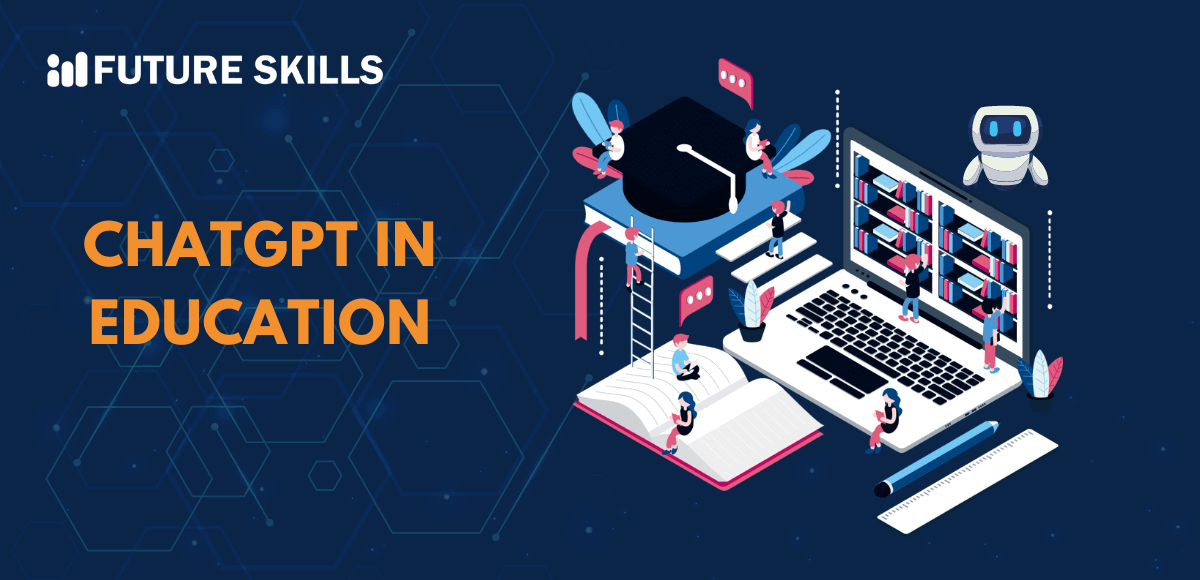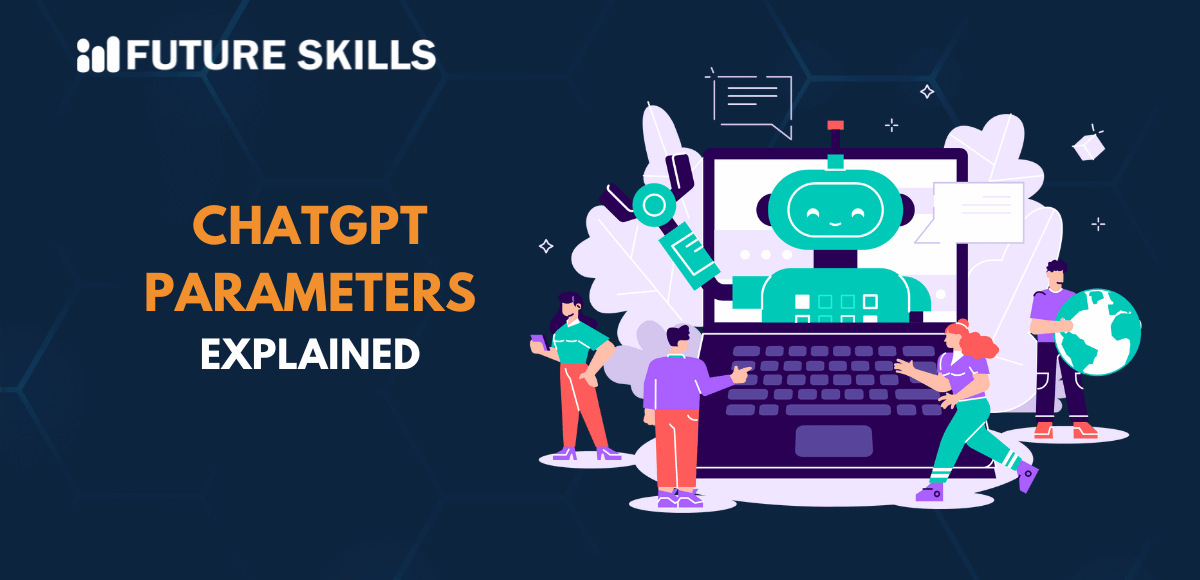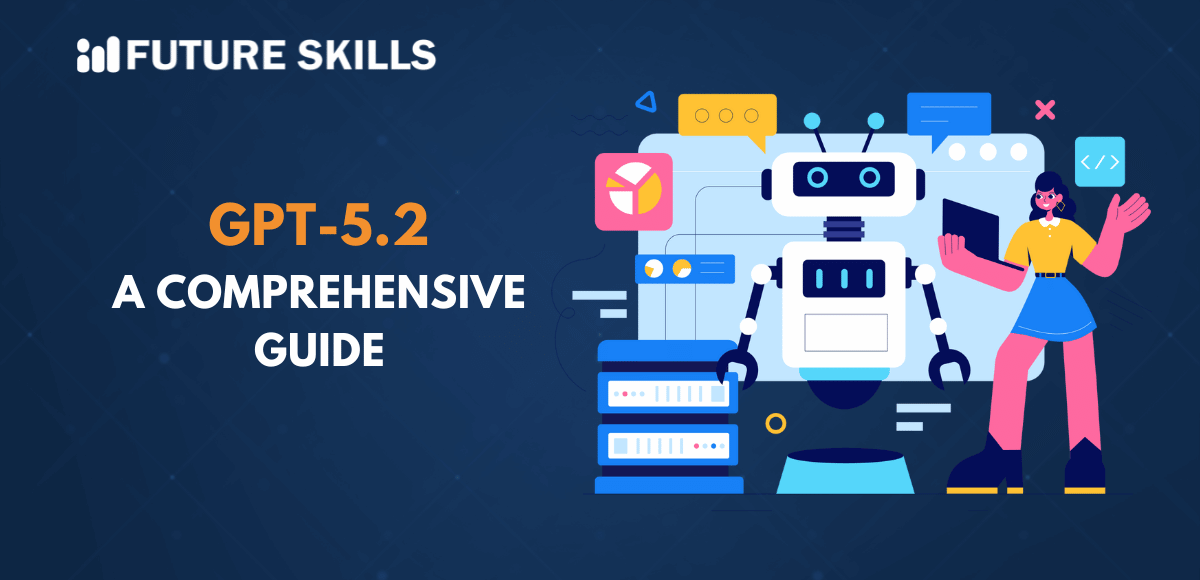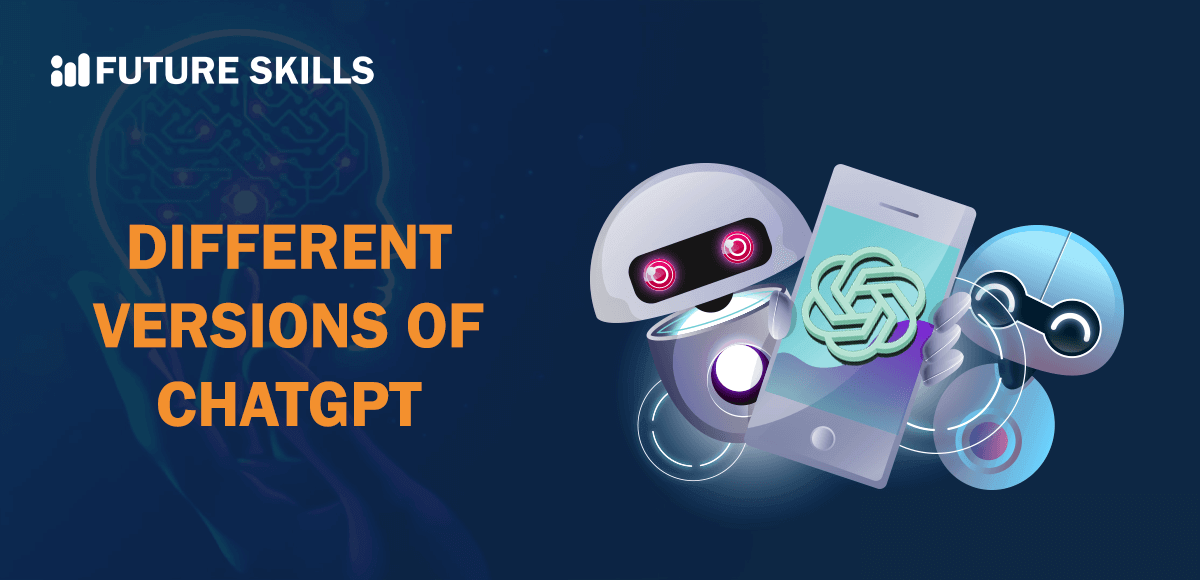The domain of contemporary education has been through some dynamic changes in recent times. As a response to the global pandemic in 2020, the education system embraced digital technology as a tool to help take education closer to students. One of the promising technologies that has helped in transforming education is artificial intelligence. The discussions about using ChatGPT in education emphasize its popularity.
However, it is important to identify the specific areas of education that you can improve with the help of ChatGPT. The revolutionary generative AI tool has the capability to answer any user query in natural language. With a unique conversational approach to interacting with ChatGPT, users can find answers to a wide range of questions. Let us find out how ChatGPT’s abilities make it an invaluable tool for transforming education.
Become a certified ChatGPT expert in just 4 weeks with Certified ChatGPT Professional (CCGP)™ Certification
Navigating the Uncertainties for Using ChatGPT in Education
Experts suggest that ChatGPT is a revolutionary milestone in the development of AI models. In the domain of education, ChatGPT can have the same impact as Google did in 1998. ChatGPT has the potential to become a powerful assistive technology for educators. Most of the discussions about how to use ChatGPT in education draw the limelight towards criticism of the tool. Educators, lecturers, and teachers across different institutions and levels of education have expressed concerns about the negative effects of ChatGPT. For example, some teachers believe that the generative AI tool can encourage academic dishonesty and plagiarism.
Academicians in popular universities such as Rochester University have classified ChatGPT as a risky online educational tools for higher education. The university believes that students should be careful while using ChatGPT. On the contrary, some institutions, such as Cambridge University, embrace the tool with optimism. They believe that it is important to understand the advantages and challenges associated with ChatGPT applications in education.
The uncertainties about benefits of ChatGPT in education continue to persist. However, the generative AI tool has the potential to transform the conventional learning process. You need a comprehensive understanding of the ways to use ChatGPT for teachers and students. It can help you discover the benefits and limitations of ChatGPT for the world of education.
Build ChatGPT skills and take the first step to becoming superhuman with our free ChatGPT and AI fundamental Course
What are the Use Cases of ChatGPT in Education?
ChatGPT can help improve the field of education by providing the capability to write poems, essays, and articles. It can also write original computer codes according to your requirements. The impact of ChatGPT on education would extend beyond its role as a tool to generate new content. As a matter of fact, ChatGPT would serve as a valuable tool for offering academic support to students.
In addition, it can also play a vital role in complementing their social and personal objectives. While ChatGPT has shown promising prospects to change the lives of students, it has also invited criticism from educators. For example, educators perceive ChatGPT as a threat to the development of core skills in students, such as analytical and problem-solving abilities.
It is important to discover multiple perspectives on ChatGPT use in education with the help of their applications for teachers and students. Limiting the use of ChatGPT in the field of education can be a formidable problem in the long run. Here are some of the top use cases of ChatGPT for teachers and students that can help you understand its capability.
Enroll now in the AI for Business Course to understand the role and benefits of AI in business and the integration of AI in business.
ChatGPT Uses for Teachers
The following examples of ChatGPT application in education for teachers and educators provide the best explanation for the capabilities of ChatGPT to transform education.
-
Content Development
ChatGPT is a popular tool that helps teachers in delivering effective and engaging learning experiences to students. Teachers can use ChatGPT to come up with new ideas for projects, lesson plans, and academic activities according to popular curriculum standards and specific learning goals.
The applications of ChatGPT in education can enable teachers to create and refine educational content and resources. For instance, teachers can rely on ChatGPT to create presentations, quizzes, worksheets, exam questions, and other resources that meet student needs.
-
Creation of Syllabus Outline
Another notable approach for using ChatGPT in the field of education focuses on creation of a syllabus. Teachers can use ChatGPT to capitalize on the capabilities of AI to develop, organize, and structure course content in an effective and coherent manner.
The benefits of ChatGPT in education help teachers with preparation of course objectives and goals alongside generating topics for the course outline. Teachers can also leverage ChatGPT for lesson planning alongside identifying and refining the ideal materials and resources for the course.
-
Automated Grading
The advantages of ChatGPT for teachers also include the flexibility for automated grading of assignments and essays. Teachers can review student essays through a comprehensive analysis of the content, coherence, and structure of writing with ChatGPT. Automated grading of student essays and assignments shows how to use ChatGPT in education to simplify the work of teachers.
ChatGPT can analyze student essays and assignments to offer accurate feedback on spelling, syntax, grammar, and punctuation. In addition, ChatGPT can also provide a comprehensive assessment of the quality of arguments presented in the essays. On the other hand, teachers must support their findings from ChatGPT by manually reviewing student assignments.
-
Assessment of Grammar and Writing Style
ChatGPT can also help teachers check grammar and writing style in student assignments. The examples of ChatGPT application in education for checking grammar and writing style can make the most of its natural language understanding capabilities. Therefore, it can help in easier evaluation and improvement in the quality of written tasks.
Teachers can rely on ChatGPT for faster review and checking of spelling, syntax, grammar, and punctuation in their own materials, such as lesson plans and handouts. Apart from evaluating student assignments, teachers can use ChatGPT to come up with simple explanations for grammar rules, writing standards, and punctuation usage. As a result, teachers can help their students learn and enhance their writing skills effectively.
ChatGPT Uses for Students
The applications of ChatGPT in the field of education are not limited to teachers only. Students can also capitalize on the features of ChatGPT to transform their learning experiences. Here are some of the most interesting ways in which students can utilize ChatGPT to their advantage.
- Homework Assistance
Homework can be one of the most troublesome concerns for any student as they have to work on academic concepts without the assistance of their teachers. Completing academic assignments at home without the guidance of teachers can be a tough task. Interestingly, the impact of ChatGPT in education can provide new ways for students to complete their homework.
For example, students can ask questions about challenging topics or concepts they encounter in homework. ChatGPT also helps improve students’ problem-solving skills by providing a better understanding of important methods and concepts. Furthermore, ChatGPT can also support students with concept reinforcement by providing additional explanations, examples, and analogies to reinforce students’ understanding of complex concepts.
-
Language Learning
ChatGPT is a proven tool that can help students improve their writing skills with personalized feedback according to their requirements. The different explanations for ChatGPT use in education show that it can also offer valuable outcomes for language learning.
Students can use ChatGPT to obtain translations for text in new languages alongside grammar explanations and vocabulary practice. The capabilities of ChatGPT as a conversational AI tool also help in simulation of conversations to continue practicing and improving language skills.
-
Personalized Learning
The most crucial advantage of ChatGPT for students is the advantage of personalized learning. Students can use ChatGPT as a trusted tool to obtain feedback on their mistakes and improve their learning outcomes. The value of ChatGPT in education also points to the ways in which ChatGPT can offer the value of personalization in completing projects, homework, and assignments.
With the help of ChatGPT, students can have complete control over their learning experiences. The feedback and responses of ChatGPT, according to the preferences of learners, can help them achieve better learning outcomes.
-
Academic Research
ChatGPT is also a valuable tool for supporting and streamlining the research process required for different academic assignments, personal interests, and projects. It can serve various promising advantages for students in the research process, including the selection of topics and search for background information on the selected topic.
Furthermore, the benefits of ChatGPT in education also help students with identification of relevant resources and organization of the research materials. Another promising advantage of ChatGPT for academic research points is the support for assistance with citations.
Excited to understand the crucial requirements for developing responsible AI and the implications of privacy and security in AI, Enroll now in the Ethics of Artificial Intelligence (AI) Course
How Does ChatGPT Transform Education?
The best way to understand the effect of ChatGPT on the education industry is to point to the different advantages of ChatGPT for education. You can discover how to use ChatGPT in education by identifying the different ways in which it can transform education. Here are some of the most important advantages that you can avail of ChatGPT in the domain of healthcare.
-
Availability
ChatGPT can serve as an accessible source of guidance, information, and doubt-clearing. The generative AI tool can help teachers and students in accessing any type of support according to their requirements. Most importantly, ChatGPT removes the barriers of time and location to access the benefits of education.
-
Personalization
The most crucial advantage of ChatGPT for education is the assurance of personalized learning. ChatGPT can help create personalized learning experiences that are tailored to the individual interests, skills, and needs of students. As a result, ChatGPT can help in creating more targeted learning approaches alongside enhancing learning goals.
-
Speed
The next prominent benefit of ChatGPT application in education points to speed of processing and generating information. Teachers can be more available to students by automating tasks, such as lesson planning, grading, and content creation. On top of it, students can also find an effective solution to complete their academic tasks on time and focus on their studies.
Does ChatGPT Have Any Limitations in Education?
ChatGPT might be a powerful tool that has multiple benefits for teachers and students in the domain of education. However, it also presents certain limitations, such as possibility of bias and issues with the accuracy and reliability of ChatGPT outputs. Most importantly, frequent use of ChatGPT in academics can reduce the prospects for creative thinking among students and teachers.
Final Words
The uses of ChatGPT have become the most discussed topic in the domain of technology. Different industries have tried to adopt ChatGPT in unique ways, and the education sector has not been the first to embrace the capabilities of generative AI. However, the impact of ChatGPT on education has been subject to criticism on the grounds of possible restrictions on creative and original thinking. Teachers and students need to find the best practices to leverage ChatGPT to their advantage. At the same time, it is also important to be careful with the use of ChatGPT and AI tools in the field of education.






